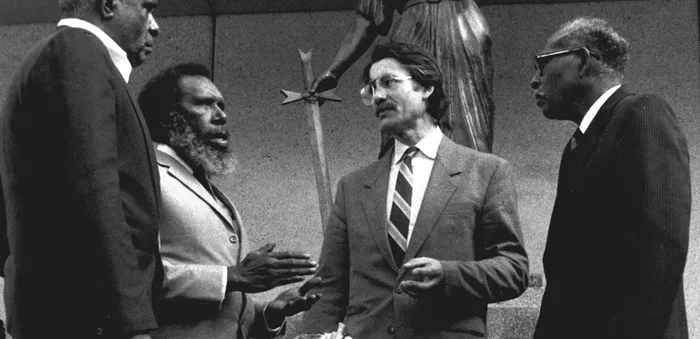Australian history is a tapestry woven with the threads of countless events, each contributing to the rich and diverse narrative of the nation’s past. May 28 holds a special significance in this tapestry, as it has been witness to a multitude of significant occurrences that have shaped the course of Australian history. From moments of exploration and discovery to periods of cultural and political transformation, the events of May 28 offer insight into the complexities of the Australian experience. In this article, we embark on a journey through time to explore the noteworthy events that have unfolded on this date, illuminating the multifaceted story of Australia’s past.
The events of Australian May 28
Captain James Cook’s Landing at Possession Island (1770)
May 28, 1770, marked a historic moment in Australian history with the landing of Captain James Cook at Possession Island, off the coast of Queensland. During his voyage aboard the HMS Endeavour, Cook became the first European explorer to chart the eastern coastline of Australia. His landing at Possession Island, where he claimed the territory for the British Crown, signaled the beginning of British colonization and the eventual establishment of the Australian nation.
Founding of the City of Perth (1829)
On May 28, 1829, the Swan River Colony was officially established, laying the foundations for the city of Perth, Western Australia. Founded by Captain James Stirling, the colony sought to establish a British presence in the region and facilitate the development of agriculture and commerce. Perth would later grow into a vibrant metropolis and serve as the capital of Western Australia, playing a central role in the state’s economic and cultural life.
The Eureka Stockade (1854)
May 28, 1854, witnessed a pivotal moment in Australian history with the culmination of the Eureka Stockade rebellion in Ballarat, Victoria. Fueled by grievances over oppressive mining regulations and lack of representation, a group of miners, known as the Diggers, staged a rebellion against the colonial authorities. The ensuing confrontation with government forces resulted in violence and loss of life, but ultimately led to reforms that laid the groundwork for greater democratic rights and freedoms in Australia.
The Opening of the Sydney Harbour Bridge (1932)
On May 28, 1932, the iconic Sydney Harbour Bridge was officially opened, connecting the central business district of Sydney with the North Shore. The bridge, a symbol of engineering excellence and national pride, transformed transportation and commerce in the region, facilitating the movement of people and goods across the harbor. Its completion marked a significant milestone in Australia’s development and remains an enduring symbol of Sydney’s skyline.
Sir Donald Bradman’s Test Debut (1928)
May 28, 1928, saw the debut of Australian cricket legend Sir Donald Bradman in Test cricket, as he played his first match for the Australian national team against England at Brisbane’s Exhibition Ground. Bradman’s extraordinary talent and record-breaking achievements would elevate him to iconic status in the world of cricket, earning him accolades as one of the greatest batsmen of all time and a revered figure in Australian sporting history.
The Establishment of the Australian National University (1946)
On May 28, 1946, the Australian National University (ANU) was established by an Act of Parliament, becoming the nation’s first university. Founded with the aim of promoting excellence in education and research, ANU has since grown into one of Australia’s leading institutions of higher learning, renowned for its contributions to academia, scientific discovery, and public policy.
The First Woman Elected to the Australian House of Representatives (1943)
May 28, 1943, marked a milestone in Australian political history with the election of Dorothy Tangney as the first woman to be elected to the Australian House of Representatives. Representing the Labor Party in the Division of Perth, Tangney’s election shattered gender barriers and paved the way for greater representation of women in Australian politics. Her pioneering role inspired future generations of women to enter public service and advocate for gender equality.
The Sydney Opera House Design Competition (1957)
On May 28, 1957, the international design competition for the Sydney Opera House was officially launched, inviting architects from around the world to submit their proposals for the iconic landmark. The competition attracted over 200 entries, with Danish architect Jørn Utzon ultimately winning the commission for his visionary design. The Sydney Opera House, completed in 1973, has since become one of the most recognizable and celebrated architectural marvels in the world, symbolizing Australia’s cultural vibrancy and creativity.
The Mabo Decision (1992)
May 28, 1992, marked a historic moment in Australian legal history with the High Court’s landmark ruling in the Mabo v Queensland (No 2) case. The decision recognized the native title rights of Indigenous Australians to land and overturned the legal doctrine of terra nullius, which had previously denied Indigenous land rights. The Mabo decision represented a significant step towards reconciliation and justice for Indigenous Australians, acknowledging their custodial connection to the land and paving the way for greater recognition of Indigenous rights and sovereignty.
The National Apology to the Stolen Generations (2008)
On May 28, 2008, Prime Minister Kevin Rudd delivered a formal apology to the Stolen Generations, Indigenous Australians who were forcibly removed from their families and communities by government authorities. The National Apology acknowledged the profound harm and suffering inflicted upon Indigenous peoples through past policies of assimilation and child removal, seeking to heal the wounds of historical injustice and forge a path towards reconciliation and healing.
Conclusion
May 28 stands as a pivotal date in Australian history, bearing witness to a diverse array of events that have shaped the nation’s identity and trajectory. From moments of exploration and nation-building to milestones in democracy and social justice, the events of this date offer a window into the complexities and resilience of the Australian experience. As we reflect on the significant occurrences that have unfolded on May 28, we gain a deeper appreciation for the diverse tapestry of Australia’s past and the enduring spirit of its people.

